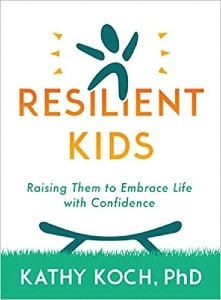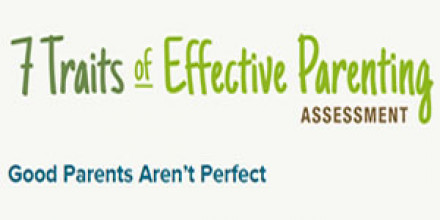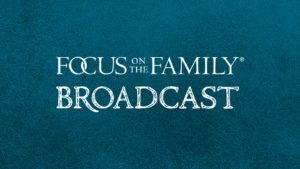Preview:
Dr. Kathy Koch: When you hear a child say, “I’m stupid,” or they behave as if they believe that.
End of Preview
Jim Daly: Yeah.
Dr. Koch: “I’m stupid, I’ll never amount to anything. I’m the lost child, they don’t love me as much.” The first thing out of our mouth is maybe, “I’m so sorry. I’m so sorry you feel that way. I’m so sorry, ’cause that’s gotta hurt your heart. How can I help you?”
John Fuller: That’s Dr. Kathy Koch, and she’s here with us again on Focus on the Family with Jim Daly. Thanks for joining us, I’m John Fuller.
Jim: John, I’m really thrilled to have Kathy back with us today. And last time, we talked about what resilience looks like, you know, for children and how we as parents can nurture that in our kids. And (laughs) it’s so important. Uh, we also talked about why it’s important for children to work through challenges and struggles, and to allow them to struggle is the key point. If you missed any part of it, I hope you’ll go back and listen to it online, it’s at the website, you can get your smartphone app for Focus and get it that way.
John: Mm-hmm.
Jim: But the point is, get it. Listen to it. Because I think it- it’s one of those programs. I just felt so engaged on it-
John: Yeah.
Jim: … because it was speaking to my heart as a parent, like so many of us today, um, how do we get an A on our report card as a parent?
John: Mm-hmm.
Jim: And this is one of the ways to do it, being mindful about building resiliency into your children.
John: Yeah, and Dr. Kathy Koch is with us again. You can hear her heart for kids when she speaks. Uh, I’ll make note that you’ll hear also the effects of, uh, a long, protracted speaking engagement that has affected Kathy’s voice a little bit. You’ll hear a little bit of, uh, roughness there. Uh, Dr. Kathy is a passionate champion for kids. She’s the founder and president of Celebrate Kids, and she speaks to parents and educators and children themselves, and her latest book is called Resilient Kids: Raising Them to Embrace Life with Confidence. And we’ll encourage you to get a copy from us here at Focus on the Family. We’re at focusonthefamily.com/broadcast, or call 800, the letter A, and the word “FAMILY.”
Jim: Kathy, welcome back to Focus.
Dr. Koch: Thank you so much, I’m glad to be here.
Jim: It was great to have you last time, and I hope parents again, if they missed it, they’ll pick it up. But let’s, for the benefit of those joining us for the first time today, what’s the recap of what resilience looks like and why it’s such an important characteristic to intentionally build into your kids?
Dr. Koch: Right. Yeah, it’s a great way to start. Resiliency is choosing to recover readily from trauma, disappointment, discouragement, fear, grief, anything that’s gone wrong, and it starts as a choice, becomes an ability, and then becomes a part of our character. So, if parents overprotect their children and don’t allow them to risk and learn from struggle, they may never mature, they may never learn as much, they may never develop into really who God intended them for… to be because they’re fearful, and we don’t want them to live fearfully. We want them to live with this abundant confidence.
Jim: You know, Kathy, one thing, uh, we didn’t get to last time, but I want to cover right at the top here, is this idea as a parent when you are trying to correct your kids, you got to really know the temperament and the style of your child-
Dr. Koch: Mm-hmm.
Jim: … so that… I think with one of my kids, you know, he’s a bit more bullheaded, so I could be straight with him and say-
John: (laughs)
Jim: … “Hey, you got to do better at that,” blah blah blah, and he would say, “All right, I get it, Dad. Thanks.”
Dr. Koch: Mm-hmm.
Jim: My other one, a little more sensitive. If I were to say that it hits right at his worth, his sense of value.
Dr. Koch: Uh-huh. Hmm.
Jim: So, speak to that.
Dr. Koch: Right. Well, it’s such a good point, right. To know our children, to study our children, to make sure that we are, um, not parenting the herd-
Jim: (laughs)
Dr. Koch: … we’re parenting each child-
Jim: That’s good.
Dr. Koch: … individually. And, um, that we honor them in that. Um, I like to remind parents that evidence is really huge. “I’m disappointed because…” “Because” is a very powerful word. “I’m really thrilled with your choices because…” “I’m disappointed with your choice because…” And then, Jim, with kids like your son who’s more sensitive, to use specific language. “It was your choice to be lazy. You chose to be lazy.” “No, I was just…” “No, you chose. All behavior starts with choice. So, you chose to be lazy. You chose to not ask for help. You chose to just be flippant and not proofread. You didn’t practice your kicking, you know, in the backyard, so your soccer tryout didn’t go as well. That’s on you, son. I am disappointed, cause you’re capable of so much more.” So, we need to be very specific, “because.”
Jim: Because. there’s the “because.”
Dr. Koch: Because.
Jim: Yeah.
Dr. Koch: So, we need to be specific, and we need to give them that reason that I think is often gonna come from our heart. I love it when parents say, “In our family we do things this way.”
Jim: (laughs)
Dr. Koch: You know? Cause we have- Why do we have a family? Why did God ordain the family?
Jim: Yeah.
Dr. Koch: We should have good values from this family. So, in our family we don’t give up quickly.
Jim: Yeah, that’s good.
John: Mm-hmm.
Jim: It’s so good. You’ve been with us before, and talked about the five core needs, uh, and identified them. Uh, we’ll even post those in a link, uh, but w- walk us through those needs and what they mean for children.
Dr. Koch: Right. Security, who can I trust. Again, is my mom there for me? Will she teach me, or just yell at me if I admit I need help? Will my mom be present? Is she, my security? Will she love me even when I get it wrong again? Such an important question.
Jim: Yeah.
Dr. Koch: Identity, who am I? Am I good or bad? Am I skilled or unskilled? Am I lazy or am I persevering? Identity controls behavior. So, tell your children they’re resilient. I’m a huge believer: catch them being resilient. Catch them trying again. Catch them not bubble-wrapping themselves. Catch them asking for help. Say, “I’m proud of you for wanting more. I’m proud of you for being resilient.” “What, Mommy?” “You’re resilient. You were asking for help.” Identity controls behavior. If they don’t have security in you, they won’t have identity found from you, and that’s dangerous. Then belonging, who wants me? Does anybody know I’m alive? Does Dad want me even if I didn’t make the football team?
Jim: Hmm.
Dr. Koch: Does Dad want me even if I only get to play one piano song and not two at the recital? Does Dad want me if I don’t like math, and he loves math? Do I belong here? Do I feel safe in my own family?
Jim: Yeah.
Dr. Koch: So, the way we communicate, again, is so important.
Jim: I- I want to punch that one more time-
Dr. Koch: Yeah.
Jim: … this idea, this connection between security and resiliency. It’s so important for kids to know that their parents are in their corner-
Dr. Koch: Yeah.
Jim: … and that’s, uh, kind of a general statement, but you have to think about it ahead of time. And I know, you know, cause I played sports in school. That was important to me-
Dr. Koch: Mm-hmm.
Jim: … and the fact that I had two boys thrilled me. So, when they were really little, I just couldn’t wait. Here it comes. And one of them was off the charts in his height, and “I- I’m gonna get a football player, maybe two! I can’t believe it. Lord, you’re so awesome!”
Dr. Koch: Mm-hmm.
Jim: And then really that didn’t ha-… They had no interest in it.
Dr. Koch: (laughs)
Jim: And I remember, uh, Troy actually trying out for a basketball team. I think it was ninth grade, tenth grade. And he made it through the first night cut, and he got in the car really happy and said, “Yeah, Dad, I made it. I’m so happy.” The second night I picked him up, he wasn’t quite as happy.
Dr. Koch: (laughs)
Jim: And what happened? “Well, I didn’t quite make it. The other guys were just too good.”
Dr. Koch: Hmm.
Jim: I said, “Well, they, you know, they’ve been playing for years, probably. You haven’t played that long.”
Dr. Koch: Mm-hmm.
Jim: So, “Hey, I’m proud of you for trying out, and what do you want to do tonight?”
Dr. Koch: Oh, so sweet.
Jim: But he managed it well, uh, too. He didn’t… He wasn’t gloomy about it. He just kind of embraced it and knew that his talent wasn’t as high as the other kids.
Dr. Koch: I love that he said, “They have played more than I have,” rather than, “I am bad.”
Jim: Right.
Dr. Koch: He understood that it was a skill comparison, which is legit, but that he verbalized that they were better, not “I am worse.” That’s a beautiful thing for your son.
Jim: Yeah, and I- y- I was really proud of him.
Dr. Koch: Yeah.
Jim: But that’s kind of that example. But as a, as a sports dad, man, you have got to think of that ahead of time.
John: Mm-hmm.
Jim: Cause you could blow it in so many ways.
Dr. Koch: Yeah. Or get a- a dad who’s an accountant who wants a mathematician, you know? But-
Jim: (laughs) Right, okay. Take it out of the sports.
Dr. Koch: Right. But- but-
Jim: But you’re right, the same kind of thing.
Dr. Koch: Yeah. But I- I understand that. Again, as a former athlete/coach, I get that. You know, can I address unconditional love real quick?
Jim: Yeah, so critical.
Dr. Koch: Because that’s a part of security and belonging. You know, we say, “I love you unconditionally. There’s nothing you can do that would cause me to love you less, and nothing you could do that would cause me to love you more.” But do we really-
Jim: Hmm.
Dr. Koch: … love our children unconditionally? If we do, then we have to celebrate effort and not be afraid that they have to try harder than a sibling or a cousin, or we had to. We have to honor progress, not look for perfection.
Jim: Mm-hmm.
Dr. Koch: And- and this is gonna kill parents, but I’m gonna say it. If you unconditionally love your children and you say to them in the morning, “I can’t wait to go on a bike ride later today,” and they spill their milk at lunch-
Jim: Yeah.
Dr. Koch: … or they don’t perform well at a poetry reading, you go on a bike ride that afternoon. Because if you don’t go on that bike ride that you said you would go on a bike ride, you just demonstrated conditional love.
Jim: Right, absolutely.
Dr. Koch: And it’s hard. It’s hard. But that’s security, and that’s resiliency. This is what children tell me, teenagers and young adults. “Dr. Kathy, I cannot risk trying for fear that I won’t make the cut and they won’t love me anymore.”
John: Mm-hmm.
Jim: Kathy, as a parent, we want to help our kids understand who they are, why they exist and what they’re good at. Man, that’s core. I feel like I’ve underdone that. I thought they were getting it. I- I don’t know that I’ve been as intentional to say, “Do you know why God made you?”
Dr. Koch: Mm-hmm.
Jim: I mean, I’ve said it, but have I said it enough?
John: Mm-hmm.
Jim: But speak to those things of purpose, uniqueness-
Dr. Koch: Yeah, yeah.
Jim: … who am I, why am I here?
Dr. Koch: Yeah.
Jim: Man, those are big.
Dr. Koch: Yeah, no, they are big questions.
Jim: And when do you start that discussion?
Dr. Koch: We-
Jim: What grade? (laughs)
Dr. Koch: We- we pray into them an awareness of God’s creative intent. Ephesians 2:10. “You were created in advance to do good work that you would walk in them.” Psalm 139 13 and 14. “You were knit together, knitted as a precise skill.” I used to say I’m too tall. I now say I’m tall, cause-
Jim: Hmm.
Dr. Koch: … “too tall” denies God was intentional and right in His choice.
Jim: That’s good.
Dr. Koch: Thank you. God has been good to me to reveal truth. So, um, who are your children? Identity. Why are they who they are? And you cannot raise them to become who they can’t be.
Jim: Mm-hmm.
Dr. Koch: They glorify God when they become who God created them to be. And this is why we study them, and we study God’s word; not just for who is God, but who am I, and who have you created my children to be? What do they delight in? What brings them joy? What breaks their heart? Where do they, um, thrive? Where does their confidence show? What do they stay up late doing, what do they wake up wanting to do? And we honor them even if they’re not like us, because purpose, “Why am I alive?” Guys, if you don’t have an answer to that question, you might as well die. And I don’t say that lightly.
Jim: Hmm.
Dr. Koch: But the second-leading cause of death for 10 to 24-year-olds is suicide.
Jim: Hmm.
Dr. Koch: They’re giving up quickly, the dropout rate from school, the dropout rate from church, the dropout rate from faith in a God of the Bible. None of it matters, because I don’t matter, because I don’t believe I was created with intentional purpose. But God is Creator with a capital C, and that’s what we teach.
Jim: Boy, that’s powerful.
Dr. Koch: Thank you.
Jim: I mean, you’re- you’re hitting it right on the- the head of the nail. I mean, and you’ve… Y- we’ve got to figure out a way to, uh, build that in quickly into our young people, so they know they’re here for a purpose, they… I- I love that. Um-
Dr. Koch: I- I love that. Quickly, and- and one of the reasons, gentlemen, is because that’s where our competence comes from. So, the fifth of the core needs is competent, what do I do well? Well, if we have purpose, we know what to work toward. If we have purpose, we won’t stay down in the valley-
Jim: Yeah.
Dr. Koch: … and we won’t bubble-wrap ourselves, or even allow someone to bubble-wrap us, because we were created to do that, and it’s gonna take some effort from me to be able to do that. But if I don’t know why I’m alive, then nothing matters, and effort, diligence, teachability, humility, none of it matters.
John: Mm-hmm
Jim: Kathy, let’s, uh, take some time to talk about how we build that resiliency into our children. And the most obvious one is talking about it. It… Like everything, we feel ill-equipped. I mean, we’re not Dr. Kathy.
Dr. Koch: (laughs)
Jim: I mean, you know, we’ve got limitations.
John: Yeah.
Jim: How do we get started there? You have some great tips in the book equipping parents to do exactly that. W- w- what’s a couple of the best ways that we go about addressing it with our kids?
Dr. Koch: You know, the first thing I’ll say is to teach, not tell and yell. Most children are doing the best they know how to do. I really believe that’s a true statement.
Jim: Yeah.
Dr. Koch: Some are not. Some are manipulating us and playing us. Many children are doing what they believe is right. We are overwhelmed, tired, stressed. I own that, I get that. Some of us aren’t very resilient, so we’re fearful. But we have got to teach our children how to survive and how to thrive, and this is how you stand back up. How does a child learn how to walk? The child falls down. Mom, Dad or somebody picks them back up, holds out your hands, backs up three feet, smiles. “Come to Mama.” You’re there and you’re present with them and for them, modeling walking in front of them. So, it’s teaching and it’s being present. It’s expecting them to improve so we’re not shocked when they are improving. And then I’ll say also, and then I’ll kick it back to you, um, paying attention to their self-talk. And you might be thinking, “How you can pay attention to their self-talk, cause self-talk is what happens inside their head?” But it always comes out, and we have got to do a better job of listening for what I call the “I am” statement. Um, “I am foolish,” versus, “I made a mistake.” “I am clueless,” versus, “This was kind of difficult.”
Jim: Mm-hmm.
Dr. Koch: Right? Um, “I am never going to get this right,” versus, “Dad, this is really hard.” Listen for defining-sounding negative and permanent “I am” statements, because as I said before, identity controls behavior. So, we don’t want them to think that, and here’s where we are really bold, guys. We hear a child say, “I am so stupid. Never gonna get it right.”
Jim: Mm-hmm.
Dr. Koch: We say, “That’s a lie.” “No, Dad, I’m stupid.” “No. What makes you think you’re stupid?” “I got five things wrong.” “Well, you’re not stupid. You got five things wrong. Tell the truth, son. Did you rush? Did you not proofread? Did you not courageously ask for help? Did you not look up the unknown word because you were lazy? You’re not stupid.”
Jim: Hmm.
Dr. Koch: “Stupid happens when you make other choices.” The other thing I think too, and that’s so critical, and I could have tears in my eyes very quickly, when it’s… when you hear a child say, “I’m stupid,” or they behave as if they believe that-
Jim: Yeah.
Dr. Koch: … “I’m stupid, I’ll never amount to anything. I am the lost child. They don’t love me as much.” The first thing out of our mouth is maybe, “I’m so sorry. I’m so sorry you feel that way. I’m so sorry, cause that’s got to hurt your heart. How can I help you?”
Jim: That’s good.
John: Mm-hmm. Well, that’s, uh, right from the heart of Dr. Kathy Koch. She’s our guest today on Focus on the Family, and we have so much that, uh, we’ve covered already. Still more to come. Uh, stop by our website and get a copy of her terrific book called Resilient Kids. We’ve got copies here at focusonthefamily.com/broadcast, or call 800, the letter A and the word “FAMILY.”
Jim: Kathy, sometimes it can be difficult for us as parents to objectively observe where our kids are at and if they’re stuck in this area. And then we devise a plan, and we help them either too little or too much. It’s rare that we’re gonna be right on the mark, I think, and it’s kind of a continuum, a degree of that help, right? That child that is stuck.
Dr. Koch: Mm-hmm.
Jim: And you use that word quite a bit in the book, and I guess the question is, uh, if they can’t figure out how to overcome a struggle, how do we help them? Uh, how much of a step out of the hole do we give them in order to help them, if at all? (laughs)
Dr. Koch: That’s a good addition, “if at all.” Um-
Jim: And I know it’s all circumstantial. But the kid that doesn’t get his homework done. Uh, you know, they’re stuck, for whatever reason. Fear of succeeding, fear of failure, whatever it might be. How do we engage that and say, “Okay, little Johnny, here’s what needs to happen”?
Dr. Koch: Yeah, it’s such a great question. Um, I’ve said it before and I’ll say it again: listen longer, observe with intentionality to see if you can determine what’s going on there. Is it a character problem? Is it a skill problem? Is it a belief problem? And then you’ll know maybe where to start your conversation. I also think that the earliest… as early as possible we should say, “What do you think is going on here?”
Jim: That’s good.
Dr. Koch: “You know, Johnny, what do you think is going on?”
Jim: I like that.
Dr. Koch: “Well, it’s really hard.” “Why do you think it’s hard?” “Well, I haven’t done it before.” “Well, that’s the purpose of school, to do what you don’t yet know. So, what do we do when things are hard?” “Oh, I could read it a second time.”
Jim: (laughs) There you go.
Dr. Koch: “I could look at what I did yesterday to see if it’s similar. I could ask you for help.” If we can train our children to with confidence come to us without fear, you know, “Dad, I don’t remember this.” And then what’s our first response, Jim? “How can you not remember that? We just did it.”
Jim: Yeah. I hope not. Yeah.
Dr. Koch: Boom, boom, boom. Not resilient, you know? Versus, “I’m disappointed you don’t remember, but I’ll be happy to help you.” Or better yet, “Let me help you,” and then maybe we say, “Do you understand?”
Jim: Yeah.
Dr. Koch: “Is there anything else I can do to help you remember? Because I expect you to remember this, because you are capable.” Not, “It’s not hard.” That’s on the assignment. “You’re capable” is on the kid.
Jim: Mm-hmm.
Dr. Koch: So, you affirm the child.
Jim: Yeah, that- that’s so good. Um, let- let’s move to another crucial aspect of resilience, and that’s, uh, how the… Uh, resiliency can be rooted in- in spiritual development as well. This is really important. I mean, this is probably the core, cause everything else is just action, but spiritual resiliency is right where the Lord is gonna deal with you.
Dr. Koch: I’m really excited that we have time to get to this.
Jim: (laughs) Good.
Dr. Koch: I really am. You know, I appreciate being here so much, and I think that the ideas that we’ve shared I really do believe have been helpful for, um… all parents of kid of any age and struggling. But you know what, guys. I’m most concerned with children who give up on their spiritual growth. A- as important as academic growth is and artistic talent and s- you know, athletic talent, spiritual development. I don’t want them to give up on themselves to grow in their faith.
Jim: Yeah, let me ask you about that. Why, with all the people, all the parents you’re counseling the kids you see, why is that true?
Dr. Koch: Yeah.
Jim: Why are more kids giving up on that spiritual resiliency today, or spiritual development?
Dr. Koch: Yeah, I mean, again, part of it is the- the church and the family dishonoring the things of the Lord.
Jim: Huh.
Dr. Koch: I don’t say that lightly, but are we as adults invested and intentional? Do our children see that we’re excited about the word of God? And what’s really fun is when I talk to parents. A lot of parents study the word of God after their children are in bed.
Jim: Hmm.
Dr. Koch: Right? So, Mom and Dad have a Bible study, and they’re intentionally deep in the things of the word of God, and they pray for each other and- and their children, but their children don’t know it. I want our parents to demonstrate a vibrant relationship with the God of the Bible in front of their children, so that children see Mom and Dad love God. The Bible isn’t just a Sunday morning book. Look what Mommy and Daddy are doing over there. And one couple who heard me speak a long time ago, the- the- the gentleman wept in front of me when he realized that every time that he was in the word, he was not with his children, except in a pew on a Sunday morning. So, he and his wife began doing a Bible study at about 7:00, 7:30 at night at the dining room table while their children were playing and doing homework and running in and out of the room, rather than at 9:00 when the children were in bed.
Jim: That’s good.
Dr. Koch: So, that… And it… So, it’s simple adaptation.
Jim: Yeah.
Dr. Koch: I… So, I think part of the reason for children to not pursue God is they don’t see us pursuing more of God. And another thing I’m gonna say, and I- I think you’ll agree, I don’t think in the church and in the family, we’re presenting the wholeness of God. God is Alpha and Omega and everything and all things. But what do children know? He is faithful.
Jim: Hmm.
Dr. Koch: Okay.
Jim: (laughs)
Dr. Koch: Now, what happens if we don’t perceive Him as being faithful toward us in one moment? Now we give up on God.
Jim: Yeah. No, that… Those are convicting thoughts all the way around.
Dr. Koch: Thank you.
Jim: I mean, in terms of what your kids are seeing in you. How are you behaving? How are you living your life with the Lord?
Dr. Koch: Yeah, mm-hmm.
Jim: And, you know, I think we’re probably too caught up in culture and contemporary things and… I mean-
Dr. Koch: It’s true. True.
Jim: … and the- the kids are right there with us, you know?
Dr. Koch: Right, yeah. Yeah.
Jim: I- it’s good to demonstrate our enthusiasm for the Lord. Um, you created something you call the Family Resiliency Manifesto.
Dr. Koch: Mm-hmm.
Jim: Now, that’s big. That sounds like, “Wow.” That sounds like a lot of work. What are the ones, uh, that stick out to you out of the manifesto?
Dr. Koch: Yeah. Thanks. Um, you know that we understand struggling is sometimes necessary, so therefore don’t be afraid of it. It is a part of life. I think that’s huge. Um, and that struggle happens sometimes because learning isn’t easy. It’s not that we’re bad or stupid or lazy or clueless. Learning is not always easy. That’s part of the manifesto. That gives children permission to say, “I don’t get it.”
Jim: Right.
Dr. Koch: “I don’t understand that God is loving. I don’t feel that. I feel His judgment today. What do you mean, Dad, that God is loving?” We need to let them know that not everything is easy. We need to not panic when we make mistakes. So, what comes out of our mouth? When we forget a doctor’s appointment, when we leave our keys on the counter, when we are running late, what do they hear us say? Do we panic, uh, for fear that we will look foolish or-
Jim: Hmm.
Dr. Koch: … we will be disappointing of others? Those are some of them. Um, we expect positive attitudes. You know, negativity and pessimism ought not live here. They can be momentary reality, but they don’t define us. That’s not of our culture.
Jim: I like that.
Dr. Koch: yeah
Jim: Those are good ones; those are really good ones. Uh, Kathy, um, you know, we’re right at the end here, and I think it’d be a good opportunity with all of the knowledge that you’ve experienced and gained doing what you do. Speak from the heart. Um, you know, it doesn’t have to be right out of the book. The book is terrific, and I hope people get a copy, but what would be your- your parting comments to the listeners who are going, “Wow, this is hitting me right between the eyes. I’ve not really thought of this. I’ve not been that intentional about resiliency in my kids.
Dr. Koch: Mm-hmm.
Jim: Um, so, you know, w- what i- what’s the parting comments to help a parent?
Dr. Koch: Yeah, I appreciate that. I don’t want anyone overwhelmed, and therefore doing nothing. We absolutely can make progress when we value ourselves and our children. It’s never too late. I like to say that we are the perfectly imperfect parents for our perfectly imperfect children.
John: Mm-hmm.
Dr. Koch: Because otherwise we would not be their parents-
John: Mm-hmm.
Dr. Koch: … whether it be foster, adopting or by birth. We’re perfectly imperfect. We can find within ourselves and our community what we need in order to step up and walk out of the valley and make a difference. To be patient with ourselves is so huge.
Jim: Well, again, this has been so good, as always.
Dr. Koch: Thank you.
Jim: Every time you’re on, Kathy, you teach so well those things we need to know as parents, and, man, I want to make sure we’re turning to you, the listener, the YouTube watcher. Uh, this is free. If you’re that parent, maybe the grandparent, and you want to gently encourage your adult children to think about how they’re parenting (laughs). We’re not there yet, but I think that day is gonna come. Uh, there’s so much for you here at Focus. This is what we live for. We come in here every day trying to create a deep well of resources for you to tap into to get that drink of water that you need, cause you may not have the answer. And certainly today and last, uh, time’s discussion can, uh, equip you in that way. Let me ask you, if you can help be part of the ministry, if you could do a monthly, uh, gift, we would love to send you Kathy’s book as our way of saying thank you. That’s how it gets done here. We’re non-profit, we trust that people are going to support us to a- give a good meal.
Dr. Koch: I support the ministry monthly.
Jim: Oh (laughs) so do we.
Dr. Koch: .and I do it, and I do it because the truth that you proclaim here is practical and necessary and biblically grounded everyday-
Jim: Ah.
Dr. Koch: and I appreciate the resources I get as a giver. I don’t give for that. But you resource us because you care that deeply about us. So, I too, just want to put in my two cents that, not don’t give us the tithe, but give to Focus if you’ve been blessed what you can.
Jim: I so appreciate that Kathy.
Dr. Koch: It matters.
Jim: It does, and it helps that monthly, that monthly gift helps even out the budget obviously and we can plan better. Um, one-time gift of course is appreciated, I don’t want to discourage that. But either way we went to get this great book into your hands, Resilient Kids, and really how to build that resiliency into your children. And, uh, you can do that by ordering a copy today.
John: Mm-hmm. Join Dr. Kathy Koch, Jim Daly and myself in, uh, being a part of the pledge community for Focus on the Family. Become a monthly donor as you can, uh, or as Jim said, a one-time gift is certainly appreciated. Uh, our phone number here is 800, the letter A and the word “FAMILY,” or stop by and make that donation at focusonthefamily.com/broadcast. And when you’re online, be sure to take our parenting assessment. It is a terrific, uh, free, uh, resource for you. It takes just a few minutes for you to fill out, and you’ll find some strengths in your parenting approach and maybe an area or two of, um, improvement, if you can. Uh, again, you’ll find a link for that free parenting assessment at our website. And next time on Focus on the Family, you’ll hear how Brian and Cherie Lowe got out of significant debt and, uh, they’ll encourage you as a couple to trust God with your finances.
Preview:
Cherie Lowe: Well, I get so many questions from people who say, “How can I get my spouse on the same page financially?” And my response is always, “You can’t. Only God can do that.”
End of Preview






















